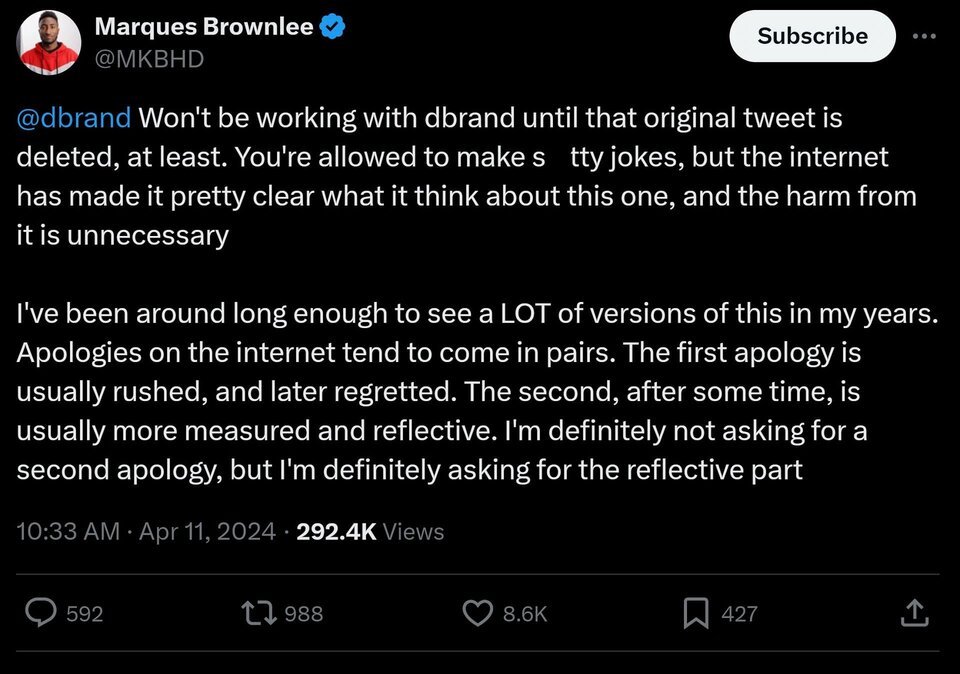The dbrand Tweet Controversy: A Social Media Firestorm
In the ever-evolving world of tech and consumer products, brands are constantly navigating the fine line between bold marketing and offensive content. One recent example that has captured widespread attention is the dbrand tweet controversy. dbrand, a well-known company specializing in high-quality skins and accessories for electronic devices, found itself at the center of a heated debate following a tweet that many deemed inappropriate.
The Tweet That Sparked Outrage
The controversy began when dbrand posted a tweet featuring a provocative and seemingly insensitive image related to a current global event. The tweet was intended to promote a new product line but instead triggered a backlash from users across social media platforms. Critics accused the brand of using a sensitive subject for shock value and commercial gain, which many felt crossed an ethical boundary.
The Social Media Response
The reaction to the dbrand tweet was swift and intense. Twitter users quickly began to voice their displeasure, with many calling for a boycott of the brand. The tweet was met with widespread criticism for its perceived insensitivity and lack of empathy. Hashtags related to the controversy trended for several days, drawing further attention to the situation and amplifying the public outcry.
dbrand’s Response and Apology
In the wake of the backlash, dbrand issued a public apology. The company’s response acknowledged the mistake and expressed regret for the offense caused. dbrand’s apology sought to clarify that the intent behind the tweet was not to demean or exploit the sensitive issue but rather to capture attention in a competitive market. The brand also promised to review its content approval processes to prevent similar incidents in the future.
Analyzing the Impact
The dbrand tweet controversy highlights the broader challenges companies face in the digital age. In a landscape where every piece of content is scrutinized, brands must navigate the delicate balance between creative marketing and social responsibility. The incident serves as a case study on the repercussions of crossing the line in the pursuit of engagement and the importance of understanding and respecting the sensitivities of diverse audiences.
The fallout from the dbrand controversy underscores a growing demand for brands to adopt more conscientious and empathetic communication strategies. It also reflects a larger societal shift towards holding companies accountable for their actions and messaging, especially in the realm of social media.
Lessons Learned
For brands and marketers, the dbrand tweet controversy offers several key lessons:
Sensitivity Matters: It’s crucial to be aware of current events and the potential impact of your content. What may seem like a harmless joke to some could be deeply offensive to others.
Intent vs. Impact: Regardless of a brand’s intentions, the impact of their messaging is what ultimately matters. Apologies should be genuine and address the concerns of those affected.
Pre-emptive Measures: Implementing robust review processes and seeking feedback before publishing content can help avoid potential pitfalls and controversies.
Conclusion
The dbrand tweet controversy serves as a reminder of the complex dynamics between marketing, ethics, and public perception. As companies continue to engage with audiences through digital platforms, understanding and respecting diverse perspectives will be crucial in avoiding missteps that could lead to public relations crises. In an era where every tweet can ignite a storm, the ability to navigate these waters with care and sensitivity will define the success of modern brands.






